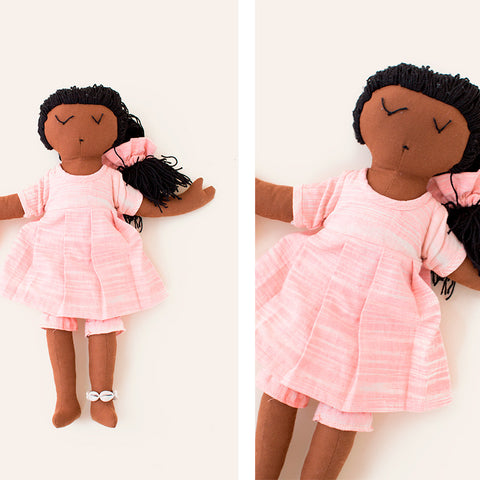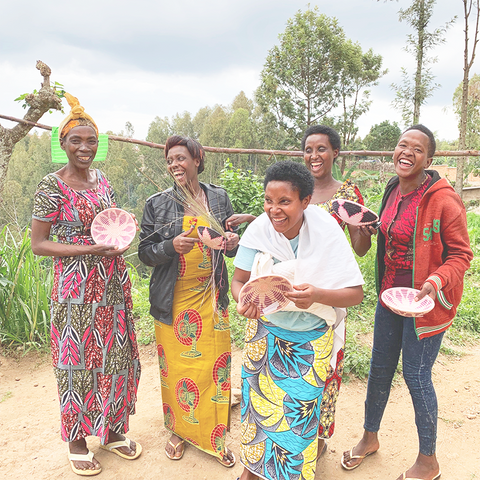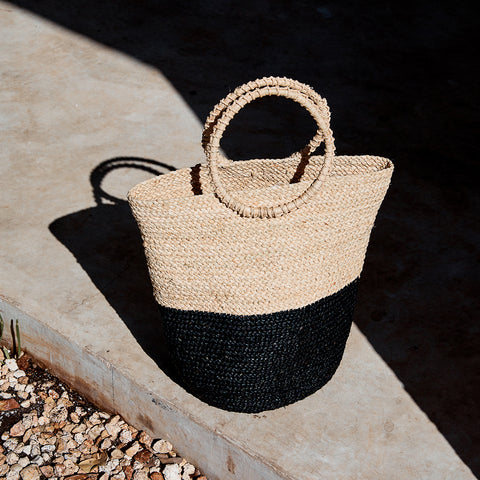Happy International Women's Day!
We wanted to honor #IWD2019 with a special collaboration inspired by the artisan women with whom we partner. Meet Saha. Her name means "fortunate" in Dagbani, the dialect spoken in Tamale, Ghana where Saha is made.
Handcrafted (and named!) by the young women of Tibehgu Taaya Cooperative, Saha represents women’s empowerment and success.

As recent graduates of Indego Africa’s Vocational & Business Training program, the young women of Tibehgu Taaya know a thing or two about what it means to be successful (and empowered) women.
“I wanted to learn a skill so I could care for myself without having to rely on others for money,” said Sylvia Agyiri, 19. “Now I am proud to be counted among professional artisans and able to make my own decisions. I feel independent and have earned the respect of my family.”
As a cooperative, the 15 young women of Tibehgu Taaya rely on each other for support and motivation. They graduated from Indego’s Vocational & Business Training program in January 2018 and continue to teach each other new things.
“I like the fact that we learn from each other, so the work gets done faster and better,” said Evelyn Dasi, 20. “We work together to brainstorm ideas for new products and sewing techniques and I think that’s special.”

During training, the young women voted to name their cooperative Tibehgu Taaya, which means “Our lives have changed.” In the year since their formation, Tibehgu Taaya has earned more than $3,426 from fulfilling purchase orders for the Indego Africa collection. From mudcloth pillowcases and ottomans, to handstitched tote bags and dolls like Saha, the young women of Tibehgu Taaya have made a wide variety of products using their growing skillsets.
“I was unemployed at home doing nothing before this,” said Julianna Adjei, 22. “Now I have a good reason to wake up in the morning, go to work, and earn an income. I am focused, confident, and most of all, proud of myself.”
Hand-stitched in Ghana and sourced in Burkina Faso, Saha’s ikat dress is made from hand-loomed, organic cotton. She wears a tiny anklet of cowrie shells symbolizing destiny, prosperity, and strength. The cowrie shell was considered particularly valuable by various tribes in West Africa who used the shell as a form of currency until the early 20th century. The shells were so treasured that Ghana named its current currency (the “cedi”) after these marine mollusks.
Saha also carries a playful mini basket handwoven from locally-harvested sisal in Rwanda for all of her tiny treasures. Because what Indego doll would be complete without a basket?
Join us in celebrating Tibehgu Taaya’s achievements and the success of all of our artisan partners across Rwanda and Ghana this International Women’s Day!



